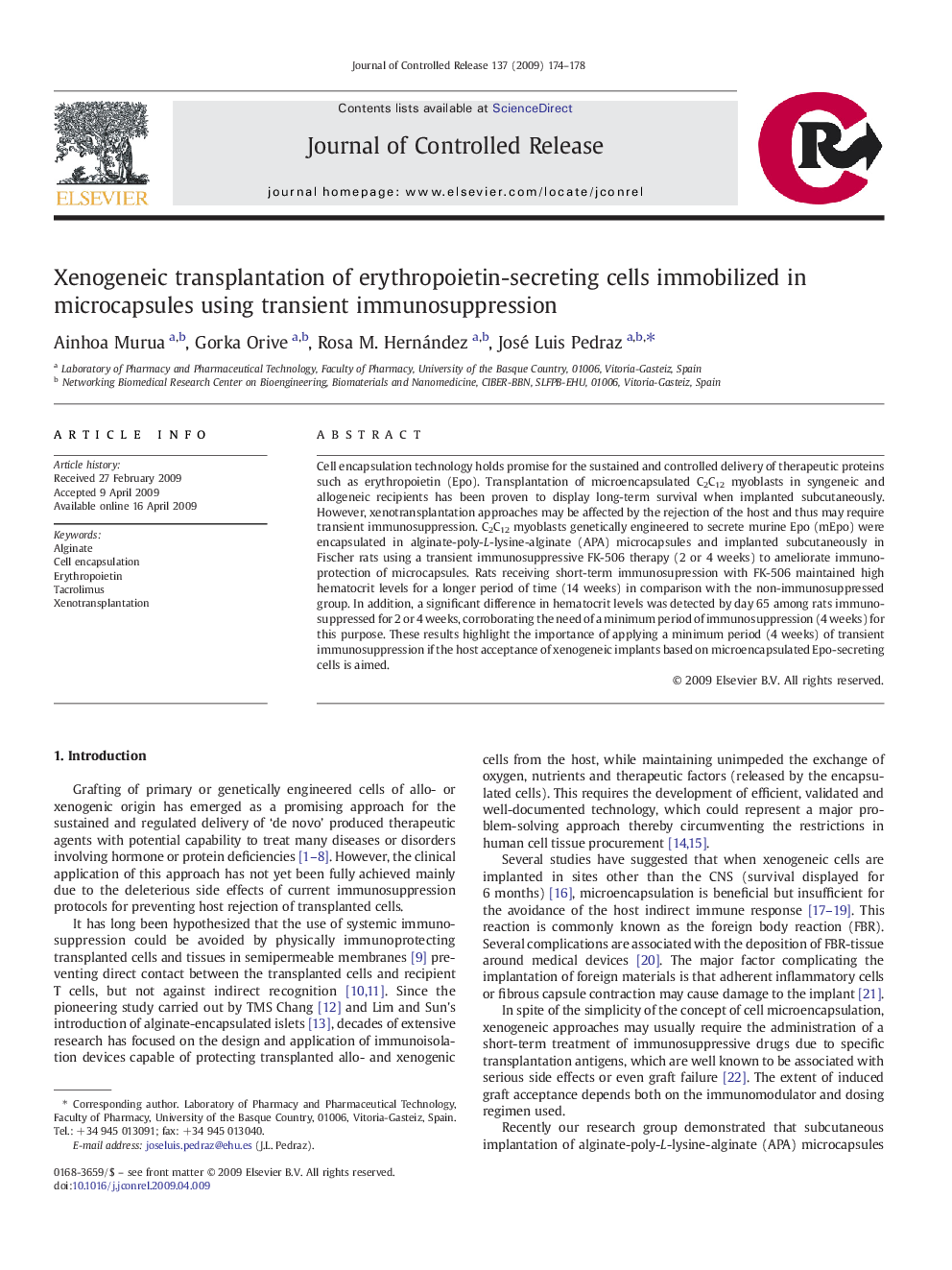| Article ID | Journal | Published Year | Pages | File Type |
|---|---|---|---|---|
| 1426116 | Journal of Controlled Release | 2009 | 5 Pages |
Cell encapsulation technology holds promise for the sustained and controlled delivery of therapeutic proteins such as erythropoietin (Epo). Transplantation of microencapsulated C2C12 myoblasts in syngeneic and allogeneic recipients has been proven to display long-term survival when implanted subcutaneously. However, xenotransplantation approaches may be affected by the rejection of the host and thus may require transient immunosuppression. C2C12 myoblasts genetically engineered to secrete murine Epo (mEpo) were encapsulated in alginate-poly-L-lysine-alginate (APA) microcapsules and implanted subcutaneously in Fischer rats using a transient immunosuppressive FK-506 therapy (2 or 4 weeks) to ameliorate immunoprotection of microcapsules. Rats receiving short-term immunosupression with FK-506 maintained high hematocrit levels for a longer period of time (14 weeks) in comparison with the non-immunosuppressed group. In addition, a significant difference in hematocrit levels was detected by day 65 among rats immunosuppressed for 2 or 4 weeks, corroborating the need of a minimum period of immunosuppression (4 weeks) for this purpose. These results highlight the importance of applying a minimum period (4 weeks) of transient immunosuppression if the host acceptance of xenogeneic implants based on microencapsulated Epo-secreting cells is aimed.
Graphical abstractFischer rats rendered unresponsive during 94 days to encapsulated C2C12 mEpo cells by transient immunosuppression with FK-506 (4 weeks).Figure optionsDownload full-size imageDownload as PowerPoint slide
